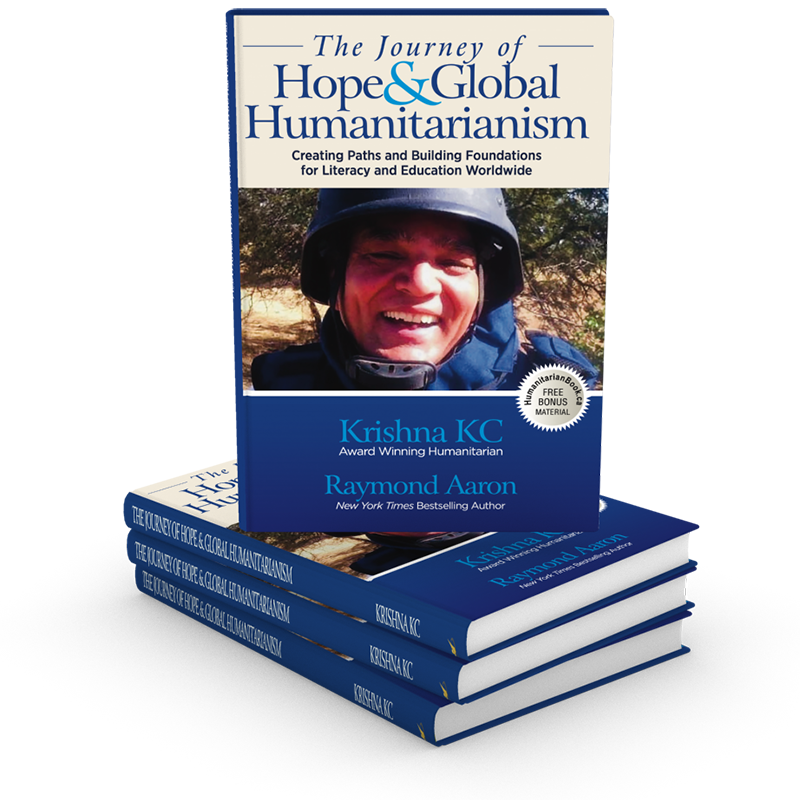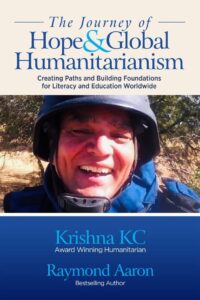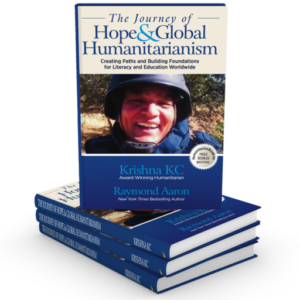Testimonials

During his career, he stood up for his principles when challenged and put to the test. KC fought even the most powerful to protect those who were oppressed and subjected to untold suffering. There were real dangers involved, even risks to his life, but he took whatever actions were necessary to get the job done. These acts of courage sprang out of his deep love for the people and communities he had vowed to uplift.
Before and long after KC was with us at the Asian Institute of Management (AIM), a pioneering international management school established for the purpose of developing socially responsible managers/leaders who will contribute to meaningful growth of Asian societies, he was filled with unwavering idealism and a very strong spirit of service.
His fulfilment in life was from serving in international humanitarian organizations operating from a strategic vantage point, to address long-standing issues of poverty-deliverance, democratic governance, collective respect for peoples’ cultures and diversity, and the protection of women, children, and other vulnerable sectors. We, the faculty at the AIM, glowed with pride when we learned that KC was awarded two gold medals by the government of Cambodia and Sudan for outstanding performance in the realm of rebuilding communities in newly emerging societies, which were then just rising from years of internal strife. More than the two shining medals, we know that what gives KC great joy is the realization that he can hand over his contributions, experiences, and knowledge to the next generation of development workers. Those who will come after him will be inspired to do as he did: stretch themselves beyond their limits and achieve their dreams with bravery and courage of conviction. Through this book, KC will keep his story of courage and action alive in the hearts of all those who will follow the path he has taken: to serve humanity to the utmost possible best.” - Prof. Soledad A. Hernando, Ph.D., Professor, Asian Institute of Management, AIM, 8 August 2020
BOOK REVIEW
 A friend and former colleague of mine, Krishna KC, has written his autobiography. He honored me with a request to write the foreword for his book. So I wrote about the difficulty of breaking out of rural poverty and actual realities of work in international development as per the below. Did I get it right? In either case, Krishna’s book is an excellent read for all with an interest in international development. Good luck with it!
A friend and former colleague of mine, Krishna KC, has written his autobiography. He honored me with a request to write the foreword for his book. So I wrote about the difficulty of breaking out of rural poverty and actual realities of work in international development as per the below. Did I get it right? In either case, Krishna’s book is an excellent read for all with an interest in international development. Good luck with it!
We all have much to learn from KC’s book. Enjoy the read!
Terje Thodesen, International humanitarian work encompasses many worlds: the world of the remote primary schools and health posts; the world of the government ministries and departments; the world of the crowded hospital wards, the pit latrines, the literacy classes held in darkness with only a kerosine lantern to read by. The high-ceilinged, fan-cooled rooms, the crumbling guesthouses, the 5-star hotels, the tents of refugee camps. Most workers in this huge, complex field find their comfort zone and work in it for a career. Many feel a strong dichotomy between the offices, the strategic plans and budgets, the donor presentations and, on the other hand, the shining eyes of a child given a new book, or a new mother comforted with her safely-delivered baby. Few are those who inhabit all these settings with aplomb and who maintain steadfastly a view of the ultimate goal: meeting the needs of the most vulnerable – all the needs of all the vulnerable. This book: The Journey of Hope and Global Humanitarianism by Krishna KC is the memoir of one such person.
International humanitarian work encompasses many worlds: the world of the remote primary schools and health posts; the world of the government ministries and departments; the world of the crowded hospital wards, the pit latrines, the literacy classes held in darkness with only a kerosine lantern to read by. The high-ceilinged, fan-cooled rooms, the crumbling guesthouses, the 5-star hotels, the tents of refugee camps. Most workers in this huge, complex field find their comfort zone and work in it for a career. Many feel a strong dichotomy between the offices, the strategic plans and budgets, the donor presentations and, on the other hand, the shining eyes of a child given a new book, or a new mother comforted with her safely-delivered baby. Few are those who inhabit all these settings with aplomb and who maintain steadfastly a view of the ultimate goal: meeting the needs of the most vulnerable – all the needs of all the vulnerable. This book: The Journey of Hope and Global Humanitarianism by Krishna KC is the memoir of one such person.
I knew Krishna when we were twenty-something, newly assigned field workers in the hills of Nepal. We were brash, we were committed, we were delighted to be working in a place where we had free rein to try out our theories and to work hard to bring our and others’ dreams to fulfillment. We spent our days discussing all the ramifications of this action plan or that strategic goal, and our nights passing on the skills of teaching adults to read in their own language – an ability that had been closed to them all their lives. This book brings those days back to life and witnesses to a person who never lost that clear focus on meeting need or that heady delight in the privilege of being a part of it all.
Many of us who go into the humanitarian field with the hope of making a difference for suffering people soon find ourselves “stuck” in offices, where field operations manuals, diversity training, committee reports and hosting donors seem to pull us away from the “real world” where the need is. Krishna reports that he was fairly early in his career “promoted” to such positions, but he never seems to have lost sight of how these very activities are going on to make a direct impact where they are needed. I was fascinated by his constant theme that operations manuals, financial management training, and teamwork building exercises were always expected to have a direct impact on better service to the most vulnerable. “Certain subjects were compulsory for all staff, such as building common ground about the organization, policies, children’s rights, women’s rights, communication, planning, participatory approach in planning, implementation, monitoring and evaluation, and so on.” Hope is his keynote, and Krishna never forgets that hope no matter how high the stack of paperwork on his desk.
He documents his inevitable encounters with egotism and arrogance, with poor management and incompetence, with unpunished crime and unchecked power, but these are not occasions to describe grievances, he just reports and moves on. On the contrary, what Krishna dwells on in all his stories are the people who worked hard for the children, who were eager to learn and improve their skills, who became friends in spite of all their differences.
The book is organized chronologically, with ten chapters, each about a different country, different employer or different role. There are only a few jumps backward or forward, for the most part the author conducts us through his life as it happened. For some readers, this chronological focus may feel somewhat repetitive, as the same themes, the same patterns, the same successes and failures recur in each new place. Others may appreciate how the themes deepen over time and how experience gives new perspectives on a basically similar set of difficulties faced by children and women worldwide.
As an educator, his career has been focused on teaching, both in-school and out-of-school, as well as various types of staff training and development programs, but Krishna’s story clearly illustrates how all the “sectors” are woven together in the lives of the people impacted. Education, while a passion, never becomes a be-all-and-end-all of development work. Rather, education programs can be the beating heart of a community focused program with other activities like water and sanitation, agroforestry and transport benefiting in turn.
Krishna says in his introduction that he is writing this book for young people who want to enter the field of humanitarian work and learn about it, but I believe that this book will be a help and an inspiration to people at any stage of their career. Reading it gave me energy, mostly retired as I am, to start a new training program myself and find another way to serve.

Hope & Global Humanitarianism: Creating Paths and Building Foundations for Literacy and Education Worldwide by Krishna K.C. and Raymond Aaron has two intertwined stories. One describes almost 40 years of international aid and community development work and the other tells of Krishna K.C.’s personal journey from a rural hill farm in Nepal to a long and successful career working with a number of international non-government organizations in 20 or so countries.
These two story lines are the foundation for the author’s main purpose: to inspire, inform and guide those who are exploring work in the international community development field. Krishna richly fulfills this purpose. Give this book to anyone interested in working internationally.
Some perspective–book reviewers usually do not refer to authors by their first names. This review is an exception because back in 1982, when Krishna began to work with the United Mission to Nepal (UMN), I was already working in non-formal education with UMN’s Community Development Assistance Project (CDAP). After three years of working together, I watched his plane head off to the Cody Institute in Canada, Krishna’s first international adventure.
This book would benefit from another round of editing to remove some repetition and to highlight particular insights with bulleted lists or charts. But don’t let this critique stop you from taking in the history and wisdom available in Hope & Global Humanitarianism. It is a useful career guide to international work–wherever a person is from and wherever they hope to go.
Of course the times keep changing–new health challenges, internal and external disputes and conflicts plus climate change continually influence global needs and global responses. But what remains the same is the fundamental importance of communication, respect and humbleness whatever the culture in which we live and work. This book honours and models these values.
Kathy Horton
